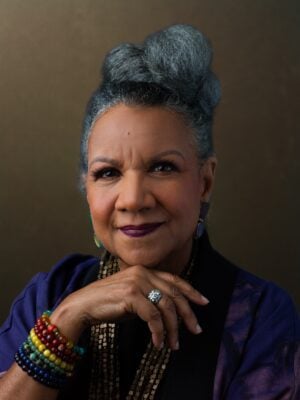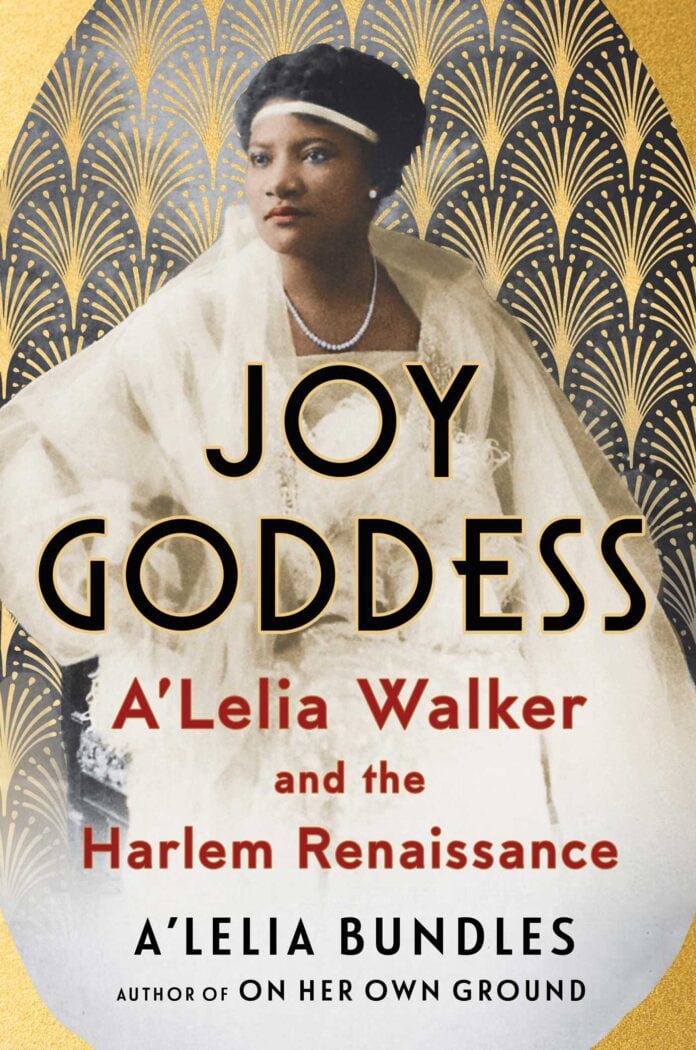A’Lelia Bundles is finally telling the story of her namesake in her new book “Joy Goddess: A’Lelia Walker and the Harlem Renaissance.”
The Indianapolis native and great granddaughter of Madam C.J. Walker is known for her career in journalism and authoring “On Her Own Ground: The Life and Times of Madam C.J. Walker” — which inspired the Netflix series “Self Made.”
Bundles sat down with The Recorder ahead of the launch of her new book on June 10 to discuss the life and legacy of her namesake, as well as the importance of preserving Black history.
Responses have been edited for clarity and brevity.
Tell me about “Joy Goddess.” What inspired you to research and write another book?
When I wrote “On Her Own Ground: The Life and Times of Madam C.J. Walker,” which came out in 2001, I realized that A’Lelia Walker needed her own biography.
I tried to begin to develop the relationship between Madam C.J. Walker and A’Lelia Walker in “On Her Own Ground.” Now I have let her come out into the world and be her own person.
READ MORE: Black-centered stories coming up on The District Theatre stage
What made you think of telling A’Lelia Walker’s story?
Bundles: When Madam Walker died in 1919, A’Lelia Walker became the president of the Madam C. J. Walker manufacturing company, but the day-to-day operation was really being handled by F.B. Ransom, her attorney, and Alice Kelly, who was the manager of the factory. A’Lelia Walker, at that point, had been living in Harlem since 1913. She had become very much a part of that New York cultural scene and once she inherited her mother’s homes and company and estate, she was one of the few African Americans who really had both the venue and the means to do the kind of entertaining and hosting that was so much a part of the Harlem Renaissance.
I wanted to be able to create this scene for readers, where they could see all the artists and writers and musicians and actors of the Harlem Renaissance who were gathering together with African American socialites and African diplomats and European Royals. It was a really extraordinary scene, and the story had not really been told in full.
What did A’Lelia mean to her community?

Bundles: One could claim that she was the first Black celebrity heiress. There were other people whose families had money, but she was very public, very charismatic, and so people saw her as the daughter of Madam C.J. Walker. They probably projected onto her what they thought she should be, but she was her own person, and because she loved culture and music and theater, and she loved entertaining — something that she shared with her mother — she wanted to have people around her, and people loved coming to her events.
One of the society columnists of the era wrote about her and said, “People swarmed to A’Lelia Walker like bees to honey. She would call people up on the phone and say, ‘Darling, I’m having a party tonight, and it wouldn’t be the same without you. Absolutely not.’”
How does the act of archiving the stories of powerful Black women help our community today?
Bundles: We have to know our history, especially at this moment when anything about our history is under threat. But the truth is, you cannot stop us from telling our stories. … Our culture is just going to shine through, and it’s very important for us to know this story.
I am very lucky in terms of just archiving. I’m very lucky that my family and the executives of the Walker Company saved documents, saved photographs, saved clothing. We had donated papers to the Indiana Historical Society in the early 80s, and the Indiana Historical Society has embraced Madam Walker’s story and did a great exhibit a few years ago. … I also have things that members of my family saved. I have the original menu and invitation to A’Lelia Walker’s Dark Tower. I have Madam Walker’s last letter to A’Lelia Walker. I even have A’Lelia Walker’s flask from the 1920s from Prohibition. But having those documents is what allows me to tell the story.
How would you describe your experience working on this book?
Bundles: The kind of research I do is so immersive that it’s digging and digging and fact checking, double checking, because there were a lot of myths about both women, so I needed to cut through those myths. … In addition to this wonderful trove of letters that I have, it’s much easier to do historical newspaper research. In the 1990s, if I wanted to read about Madam Walker or A’Lelia Walker in the Chicago Defender, or in the Pittsburgh Courier, I would have to go to Chicago, to the public library and look through microfilm. … Now I can sit at my computer at home in the middle of the night and pull up newspapers.com.
Last time I knew what I was doing. Madam Walker’s story, in some ways, is an easier story to tell, because it is that kind of rags-to-riches, an orphan at seven, married at 14, widowed at 20, hair falling out, washerwoman till she was 38, became a millionaire.
A’Lelia Walker’s story is more complicated because she is the daughter of a larger-than-life figure. … Sometimes she’s reduced to a caricature of “Her mother made the money, she spent the money.” But for me, when you really examine the Harlem Renaissance and the role that she played … she was the person who had both the place and the personality to convene people.
She was an influencer and a party planner — what I’ve decided to call a social impresario. She was the person who brought people together.
You had such a notable career as a journalist. What does it mean to you to be able to tell the story of your namesake?
Bundles: This has been a pursuit coming for a long time. I wrote my first paper report about A’Lelia Walker when I was a high school senior at North Central High School in 1970 … In fact, it really was A’Lelia Walker, more than Madam Walker, who interested me first. … A’Lelia Walker knew the artists, the writers that I was just beginning to discover. So this is really a dream fulfilled, to be able to write this book, to be able to share A’Lelia’s story and to let her take the stage on her own.
“Joy Goddess: A’Lelia Walker and the Harlem Renaissance,” comes out on June 10. The Madam Walker Legacy Center is hosting Legacy Reception & Book Chat: An Afternoon with A’Lelia Bundles at 3:30 p.m. on June 22 to celebrate the book’s launch.
For more information, visit madamwalkerlegacycenter.com or aleliabundles.com.
Contact Arts & Culture Reporter Chloe McGowan at 317-762-7848. Follow her on X @chloe_mcgowanxx.
Chloe McGowan is the Arts & Culture Reporter for the Indianapolis Recorder Newspaper. Originally from Columbus, OH, Chloe has a bachelor's in journalism from The Ohio State University. She is a former IndyStar Pulliam Fellow, and has previously worked for Indy Maven, The Lantern, and CityScene Media Group. In her free time, Chloe enjoys live theatre, reading, baking and keeping her plants alive.





